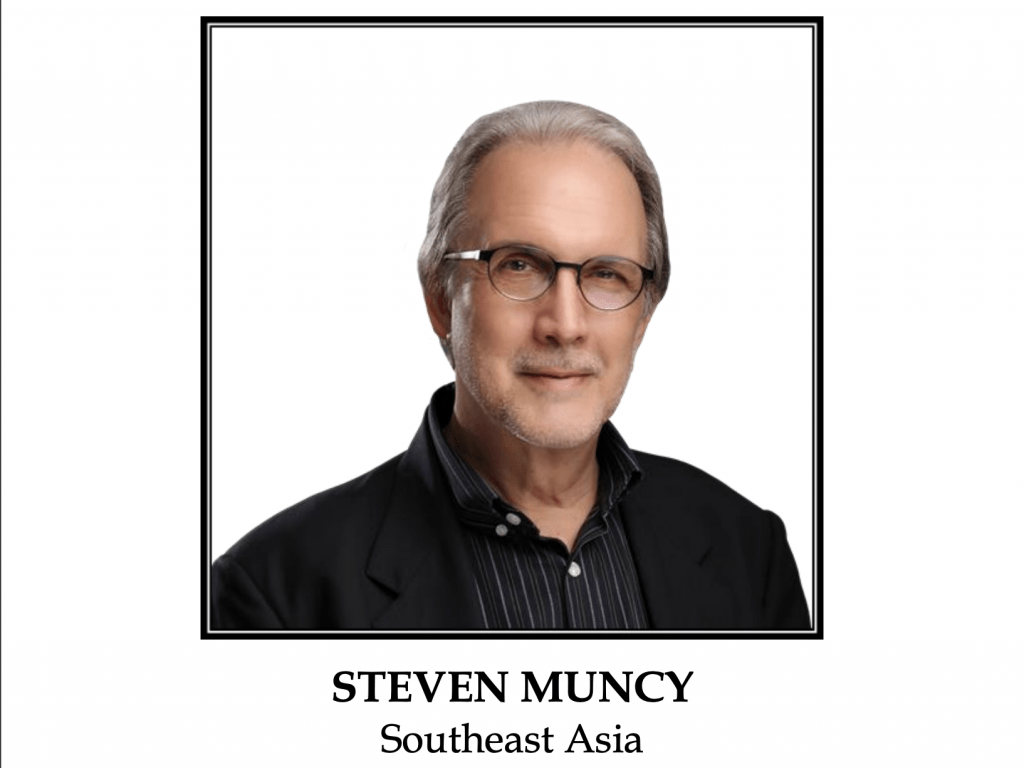
Steven Muncy, a 64-year-old American who traveled to Asia to help refugees during the Vietnam War, is one of this year’s recipients of the Ramon Magsaysay Award, dubbed as “Asia’s Nobel Prize.”
The American Baptist is honored for his “unshakable belief in the goodness of man that inspires in others the desire to serve.”
The Award recognizes Muncy for his “life-long dedication to humanitarian work, refugee assistance, peace building, and his unstinting pursuit of dignity, peace, and harmony for people in exceptionally difficult circumstances in Asia.”
Established in 1958, the Ramon Magsaysay Award is Asia’s premier prize and highest honor.
It celebrates the memory and leadership example of the seventh Philippine president after whom the award is named, and is given every year to individuals or organizations in Asia who manifest the same “selfless service and transformative influence that ruled the life of the late and beloved Filipino leader.”
Award winners each receive a certificate, a medallion bearing the likeness of the late President Magsaysay, and a cash prize.
Muncy was raised in a humble Baptist family grounded in the principles of Christian love for others.
In 1980, he enlisted in a Baptist journeyman social ministry program that brought him as a volunteer to the Philippine Refugee Processing Center in Morong town in the Philippine province of Bataan.
“I am so grateful for the opportunities that have allowed me to help a little; grateful for the people who have been involved in this organization; grateful for the blessings I have received from the community,” Muncy was quoted in a statement from the Ramon Magsaysay Award Foundation.
The center was a transit center for Indochinese refugees of the just-ended Vietnam War.
Seeing the dire lack of psychosocial services in the camp, he formed a non-governmental organization, Community Mental Health Services, to address the need with support from the Norwegian government and the United Nations High Commissioner for Refugees.
In 1989-1993, Muncy’s organization was also tasked by UNHCR to do similar work in the Vietnamese refugee camps in Hong Kong.
The group, renamed Community and Family Service International (CFSI) in 1989, defined itself as a humanitarian organization committed to “the lives, wellbeing and dignity of people uprooted by persecution, armed conflict, disasters, and other exceptionally difficult circumstances.”
Over the years, the organization has assisted refugees from 48 countries and territories.
In Myanmar’s Rakhine State, Muncy’s group helped hundreds of thousands by providing literacy training for women and girls and working with communities to build water and sanitation facilities.
In the Philippines, the organization has provided relief to thousands of families in natural disasters. It is also responding to the humanitarian disaster of the Battle of Marawi in 2017.
With the Australian government’s support, CFSI is implementing the Marawi Recovery Project, aimed at providing livelihood and other assistance to some 40,000 persons.
With the United Nations Children’s Fund, the group helped with the transition of some 900 former child soldiers, assisting their families to get them back to school and lead peaceful, productive lives.
From a few workers in 1981, CFSI has a current staff of nearly 400 in three countries.
“What it has achieved is the effort of many,” said the Ramon Magsaysay Award Foundation. “Yet, it is also the creation of its founder and leader,” it added.
Source: Licas Philippines
0 Comments